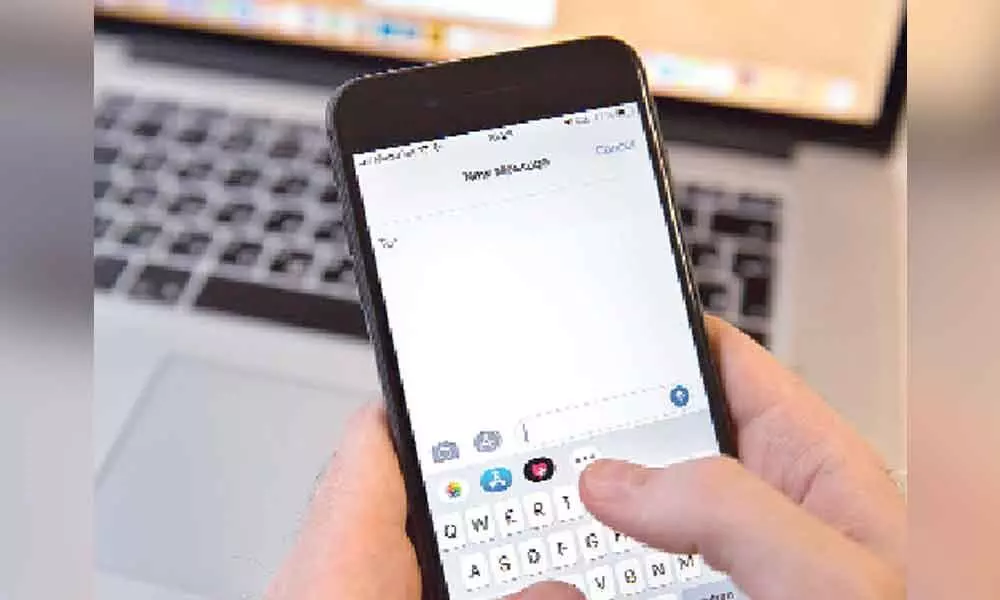Live
- Visakha Dairy head Adari Anand joins BJP
- Christmas celebrated with religious fervour
- Christmas celebrated with gaiety
- Unity, charity, fervour at X’mas fete
- Ambedkar's vision for country neglected by Congress: Modi
- Pothula Chenchaiah remembered on death anniv
- Water released from Koilsagar project
- A B Vajpayee statue works get underway
- Row over 2 BHK units allocation
- Gadwal: Blood donation camp conducted
Just In
Text messaging can improve access to prenatal health information


New York: Instant messaging apps have made life simpler for people in several ways, one of which includes access to information about prenatal health....
New York: Instant messaging apps have made life simpler for people in several ways, one of which includes access to information about prenatal health.
Findings of a new study reveal that pregnant urban African American and immigrant Afro-Caribbean women are more likely to receive the prenatal health information they need if they are given access to mhealth apps.
The study was conducted by the researchers of SUNY Downstate Health Sciences University School of Public Health and was published in the journal - JMIR mHealth and uHealth.
"Using Text Messaging to Improve Access to Prenatal Health Information in Urban African American and Afro-Caribbean Immigrant Pregnant Women: Mixed Methods Analysis of Text4baby Usage", the study said.
This study aimed to understand the real-life experiences of pregnant urban African American and Afro-Caribbean immigrant women with accessing quality prenatal health care and health information; to assess usage of mHealth for seeking prenatal health information; and to measure changes in participants' knowledge, perceptions, and behavioral intent to use the Text4baby mHealth educational intervention.
Beginning with a focus group of nine women, the investigators identified three barriers these women faced in getting quality prenatal health information including the quality of patient-provider engagement, a lack of social support, and acculturalisation of immigrant women.
"We discovered that inadequate engagement with their provider left these women feeling indifferent about the prenatal care and information they received in the clinical setting," said the lead researcher Tenya M. Blackwell.
"Based on these findings, we developed a survey of 49 women to gauge whether an app like Text4baby might bridge this indifference," added Blackwell.
The results of this survey showed 63% believed an app like Text4baby would provide them with the extra support they wanted during pregnancy. Additionally, on a Likert scale of 1 to 5, their perception of the usefulness, compatibility and relative advantage of using the app ranked at 4.26, 4.41 and 4.15 respectively.
In a follow-up survey to measure changes in knowledge, perceptions and intent, these women showed a 14% increase from earlier testing in reporting their intent to use the app, and a 28% increase in their intent to speak more with their provider about the prenatal health information they learned about on Text4baby.
"In today's society, smart phones are ubiquitous and information delivered through them cuts across most social, cultural and economic barriers," said the principal investigator Laura Geer.
"Even with a small sample size, these results clearly demonstrate how mhealth apps, focused on prenatal health, can go a long way in overcoming the economic, social and cultural barriers these women face in receiving the prenatal health information and care they need to have a healthy pregnancy," added Laura Geer.

© 2024 Hyderabad Media House Limited/The Hans India. All rights reserved. Powered by hocalwire.com






